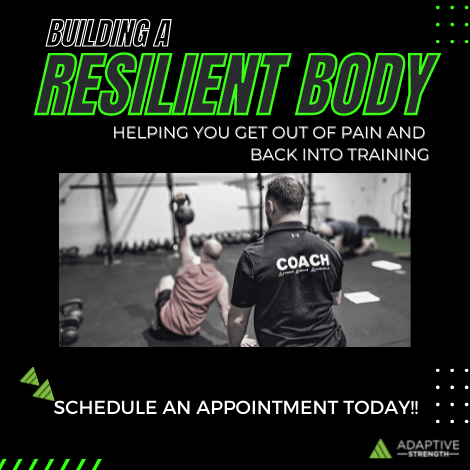Living with a disability can bring many challenges to day-to-day life, but gaining control over physical abilities and improving independence is possible through Exercise Physiology. Under the National Disability Insurance Scheme (NDIS), Accredited Exercise Physiologists offer personalized, structured programs that help individuals with disabilities increase their physical function, mobility, and confidence. At Adaptive Strength in Booragoon, we work closely with NDIS participants to create tailored exercise plans that empower them to lead more independent and fulfilling lives.
The Role of Exercise Physiology in the NDIS
Exercise Physiology focuses on using movement as therapy. Accredited Exercise Physiologists (AEPs) are trained professionals who develop exercise programs specifically designed to meet the individual needs of their clients. Under the NDIS, participants with physical, neurological, and chronic conditions can access Exercise Physiology to improve their health and ability to manage everyday tasks.
Exercise Physiologists assess each person’s condition, abilities, and goals, creating a personalized program that not only helps with rehabilitation but also fosters long-term physical independence. These programs can include strength training, mobility exercises, coordination drills, and balance work to address specific limitations and improve overall quality of life.
How Exercise Physiology Enhances Independence
Exercise Physiology is not just about improving physical health; it is about giving NDIS participants the tools to regain control over their bodies and, in turn, their lives. Here’s how tailored exercise programs can help individuals with disabilities improve their independence:
1. Improving Mobility and Functionality
One of the most significant ways Exercise Physiology enhances independence is by improving mobility. Many NDIS participants face challenges with movement, whether due to neurological conditions, chronic illnesses, or physical impairments. Exercise Physiologists design specific programs to enhance strength, flexibility, and coordination, allowing participants to move more freely and confidently.
With improved mobility, NDIS participants find it easier to perform everyday tasks such as walking, climbing stairs, or getting out of bed. This greater range of movement helps individuals reduce their reliance on carers or assistive devices, increasing their ability to navigate their environment independently.
2. Building Strength and Endurance for Daily Tasks
Everyday activities like lifting, carrying, and even standing for extended periods can be difficult for individuals with certain disabilities. Accredited Exercise Physiologists focus on building strength and endurance through targeted exercises that help participants improve their ability to handle these physical demands.
For example, strength training can improve the ability to carry groceries, lift objects, or support one’s own body weight when transferring from a wheelchair to another surface. Building endurance through cardiovascular exercises also enables individuals to sustain activity for longer periods, making it easier to engage in daily tasks without fatigue.
3. Enhancing Balance and Preventing Falls
For many NDIS participants, a loss of balance or poor coordination can increase the risk of falls, leading to injuries and reduced confidence in mobility. Exercise Physiology helps improve balance and stability through specific exercises designed to enhance coordination, strengthen stabilizing muscles, and develop spatial awareness.
These improvements in balance are crucial for maintaining independence, as they allow individuals to walk more securely, navigate uneven surfaces, and reduce the likelihood of falls that could lead to further physical limitations.
4. Promoting Self-Reliance Through Personalized Programs
One of the most important aspects of Exercise Physiology for NDIS participants is the highly personalized nature of the programs. Accredited Exercise Physiologists work closely with each participant to understand their unique needs, goals, and limitations. This ensures that every exercise plan is tailored to address specific challenges and help individuals achieve measurable improvements.
By working at their own pace and following a program that is designed specifically for them, participants are able to take ownership of their progress. This sense of control promotes self-reliance and builds the confidence needed to face physical challenges head-on.
5. Managing Chronic Conditions and Pain
Many NDIS participants live with chronic conditions such as arthritis, diabetes, or cardiovascular issues, which can limit their physical abilities and reduce their quality of life. Exercise Physiology offers a proactive approach to managing these conditions, helping to reduce symptoms and improve function.
For example, exercise can help individuals with arthritis maintain joint mobility and reduce pain, while participants with diabetes can improve their blood sugar control and reduce the risk of complications through regular physical activity. Managing these conditions through exercise empowers participants to take control of their health, reducing their reliance on medical interventions and increasing their independence.
Success Stories: Independence Through Exercise
At Adaptive Strength in Booragoon, we’ve seen firsthand how Exercise Physiology can transform the lives of NDIS participants. From individuals recovering from stroke and regaining the ability to walk, to those with chronic conditions finding relief from pain and increased mobility, the results speak for themselves.
One of our clients, for example, came to us after struggling with severe balance issues due to a neurological condition. Through a personalized program focused on balance training, strength exercises, and mobility work, they have regained the confidence to walk unassisted and perform daily activities that were once out of reach. This improvement in their independence has had a profound impact on their overall quality of life.
The Power of Exercise Physiology for NDIS Participants
Exercise Physiology is more than just a physical therapy; it’s a pathway to independence for NDIS participants. By focusing on personalized, structured exercise programs, Accredited Exercise Physiologists help individuals regain control over their bodies and lives. Whether it’s improving mobility, building strength, enhancing balance, or managing chronic conditions, Exercise Physiology empowers NDIS participants to lead more active, independent, and fulfilling lives.
If you or a loved one is an NDIS participant looking to improve physical function and gain more independence, consider the benefits of Exercise Physiology. Contact Adaptive Strength in Booragoon today to learn more about how our Accredited Exercise Physiologists can help you on your journey to better health and independence.
Get in touch with Adaptive Strength in Booragoon today to explore how Exercise Physiology can help you achieve your goals and live more independently under the NDIS!




